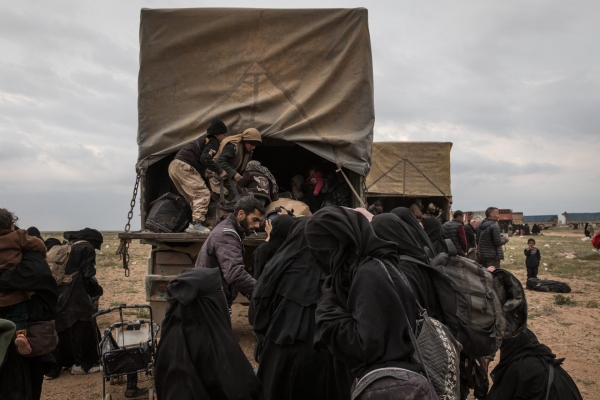Since 2013, Turkey has become one of the most leading source of recruitment for the terrorist group known at the time as the Islamic State of Iraq and al-Sham (ISIS), which - on 29 June 2014 – has announced the (re)birth of the Caliphate, self-proclaimed Islamic State (IS). Indeed, the estimates report that the Turkish citizens immigrated into the IS-held territories to fight jihad ranging from 5,000 to 9,000. Therefore, the returning of these mujahiddin, following the fall of IS, threatens Ankara, not only because it creates a border management problem with Syria, but also because it endangers the internal stability of the state.
As the International Crisis Group (ICG) underlies, Turkey has already experienced three waves of returns by mujahiddin forced to leave the IS due to military defeats against the US-led international coalition. The first wave has come back toward the end of 2014 and early 2015, during the battle against the People's Protection Units (YPG) for the conquest of Kobane; the second one has come during the Turkish operations Euphrates Shield, aimed at defeating the IS and blocking the Kurdish advance in Rojava; the last wave during the battle for the liberation of Raqqa in 2017. The mujahiddin and the IS’ families have continued to return to Turkey since then.
Although Ankara feels threatened by the ex-fighters of the Caliphate, the Turkish authorities and officials evaluate these returnees to be less dangerous than others and consider the IS as criminal as the FETÖ group and the Kurdistan Workers' Party (PKK), which have been declared “terrorist organisations”. For this reason, Turkey has developed policies that do not distinguish among affiliates of IS and rebels belonging to other militant groups, without taking into consideration that each of them represents a different threat and challenge to the state. Thus, the government wants to focus more on prevention rather than planning programmes aimed at the resettlement and social integration of ex-jihadists, so as to prevent the Turkish population from still being subject to recruitment.
More specifically, the strategies adopted by Turkey to face the threat represented by returnees from the "Islamic State" are detention, monitoring and surveillance of the most suspicious and dangerous persons, prosecutions, and preventive activities in prisons.
The detention and surveillance of individuals suspected of having links with the IS’ terrorist network takes two to four days. It is considered by Turkish security services one of the most effective preventive measures since it dissuades potential recruits from joining IS and it is a «clear warning to those contemplating violent acts that they can be caught at any time». However, short-term detentions also have a negative effect: they could increase resentment towards the state and risk pushing individuals further violence.
As concerns prosecutions, the ICG points out that only a small portion of IS’ returnees are brought before them, although the number of cases against them has increased in recent years. Most of those who go on trial are sentenced to between five and ten years for membership in a terrorist organisation. Yet, prisoners may also be released early for good behaviour after serving three-quarters of their sentence or they are given reduced sentences under an "active remorse" clause if they agree to share information.
Instead, the preventive activities in prisons are aimed at blocking the diffusion of the Salafi-jihadi ideology propagated by the mujahiddin prisoners. For this reason, Turkey has chosen to isolate the ex-jihadists from the others and to lock them up in separate wings of the maximum-security prisons. However, due to overcrowding of the jails, this measure is not always feasible, and the worst risk is that hierarchically structured terrorist cells will be created within them.
Having noted the substantial ineffectiveness of the policies and measures adopted by Ankara to manage the problem of IS’ returnees, according to the ICG, the government should correct their shortcomings and, above all, develop strategies aimed at the social integration of the ex-jihadists, by focusing not only on prevention through intelligence tools, but on the definition of the real needs of the Turkish population and the real reasons for individuals to join IS.
To read more, please visit:
https://www.quotidiano.net/cultura/daesh-significato-1.2379975
https://www.thezeppelin.org/operazione-scudo-sulleufrate-lintervento-turco-in-siria/
Author: Antonella Palmiotti







